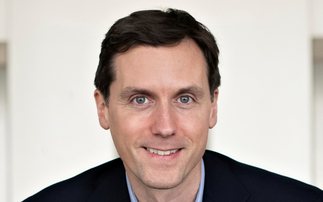PP editor Jonathan Stapleton speaks to NEST director of customer engagement Mark Rowlands about how his scheme is engaging members.
Jonathan Stapleton: How is NEST working to engage its members?
Mark Rowlands: We thought long and hard about what the purpose of engagement was, the challenges our members had, and what it was we were trying to achieve. We were trying to get them to think differently about pensions but also to change how they feel about pensions.
We spent a lot of time talking to our members about what language they understand and tried to strip out some of the complexity that has previously gone with pensions so people actually understood the language we used.
Then we spoke to some behavioural academics to ask what they could tell us about how people consume information and how they make decisions.
Finally, we have a series of ‘test and learns'. For instance, we have done one of these around email communication; and another around video. Because of our size, we've got the ability to do small but statistically relevant tests that allow us to see how we can best drive the behavioural change that we're looking for, be that an action - registration for instance - or simply giving them the confidence that they are doing the right thing.
Jonathan Stapleton: Can you tell us more about teachable moments and how they can help communication?
Mark Rowlands: Teachable moments are a concept that comes from behavioural finance and they are all about looking at the moments in life where you or I would be more receptive to a particular message and then using those moments to communicate.
People have understood the theory around this for a long time but now we have more advanced technology, it's actually possible to use this. One example would be, instead of sending an annual benefit statement out in a particular month of the year, why not send it out in the month of birth for example, so someone's birthday is therefore the right trigger to communicate.
What we're currently doing is testing that hypothesis. We did some work with the University of Maastricht around this in terms of the theory and now we're testing it for real with our membership - testing questions such as whether is it better to send a communication at the beginning of the year rather than the middle of the year; if it better to communicate during someone's birthday month rather than a random month that the scheme chooses.
Jonathan Stapleton: How are you using your digital offering to help communicate with your membership?
Mark Rowlands: Digital can work really well and it can work really badly. It's about how you execute it. There are some golden principles here and I think we need to remember that more information doesn't equal better understanding or more action. In fact the opposite is true, more information just leads to confusion and that white noise of overload.
There was a Nobel Prize winner in the 70s, a guy called Herbert Simon, who summed this up by saying more information destroys attention. If you think about that for our membership in the digital age we live in, that is so true in that people will get over 20,000 different messages every single day - how as a pension scheme do we make our message stand out in a way that is then going to be heard and actioned, that's our challenge, and the challenge of any scheme.
Digital can work, but you have to personalise it and what I mean by that is you have to personalise the timing - teachable moments is an example here; you have to personalise the content; you have to know about your member and send them information in a format that is relevant to them; then you have to personalise the call to action. So if you can create that personalisation, then the video can cut through that noise of life and drive a behavioural change that you're trying to achieve.
One of the principals that we apply is something called ‘the Fogg Model'. There's a behavioural academic called Professor Fogg from Stanford University. He's got a two-dimensional axis - the vertical axis is about motivation, and the horizontal axis is about ease. What we're trying to do is create the motivation and the ease, and the ability of digital, of course, is you can stimulate the behaviour and direct people straight to where the action can be executed.
Jonathan Stapleton: Looking at video in more depth, how are you using video specifically to communicate to your membership?
Mark Rowlands: While the focus in the media is often about the millennial generation, our first video is actually targeting our 45-55 cohort because we're trying to prepare them for retirement. The subsequent videos later this year will target millennials and try to get them to do something different, normalising savings and so on.
Jonathan Stapleton: To what extent should schemes segment communications between different groups - how far do you segment your membership in tailoring communications?
Mark Rowlands: Segmentation can take a scheme so far but what we've got to remember is that one 45 year old will be very different to another 45 year old, so segmentation on its own won't work. What you have to be able to do is combine segmentation with personalisation and understand the right levers to pull for different members of those cohorts - and that's hard because schemes don't necessarily have all the necessary data; or know what else is going on in their members' life.
What we do know, however, is the member's date of birth, we know their postcode and things like that. From that, you can deduce certain things and build up the understanding of your membership so you can personalise messages and really start to drive significant behavioural change.







